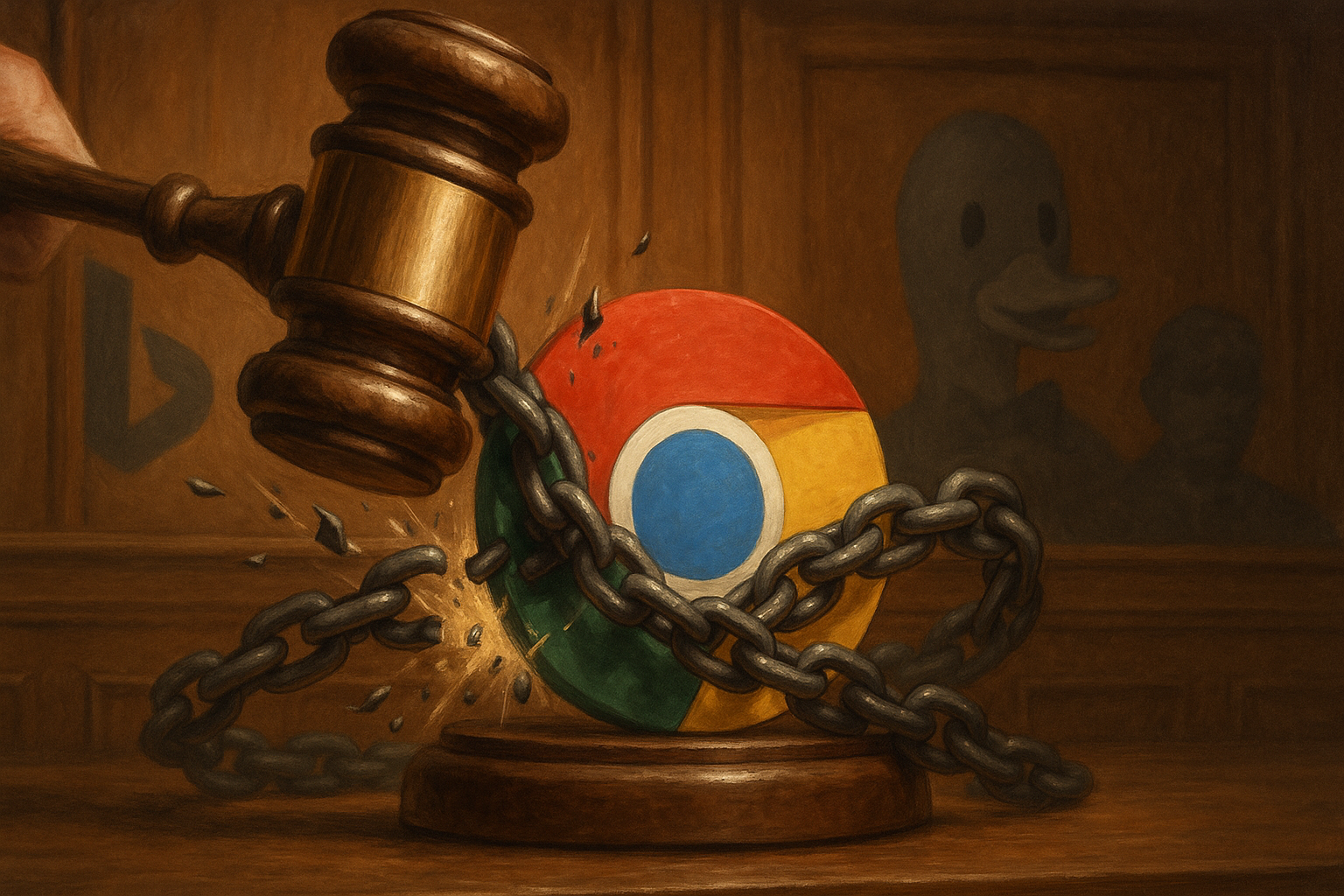So it's official. After what feels like a lifetime of legal maneuvering (four years, but who's counting?), Judge Amit Mehta has finally handed down his remedy in the Google antitrust saga. And like most things in Washington these days, nobody's walking away completely happy—or completely devastated.
The ruling? Google keeps Chrome but loses those exclusive search deals that have been the company's bread and butter for years. You know the ones—the arrangements that make Google the default search engine on just about every device you've ever touched.
I've been covering tech regulation since before TikTok was even a thing, and this case has always struck me as particularly fascinating. It's not just about a company that got too big; it's about how Google built what I can only describe as a perfect machine of self-perpetuating dominance.
Think about it. More users means more data. More data means better search results. Better search results attracts more users. Rinse and repeat. Then lock it all down with exclusive distribution deals, and... well, you've got yourself a monopoly, according to Judge Mehta.
Back in August, the court determined Google had indeed violated Section 2 of the Sherman Act—that dusty old piece of legislation from 1890 that's suddenly found new relevance in our digital age. (Funny how the laws designed to break up railroad trusts are now being used against companies that didn't exist twenty-five years ago.)
The remedy is where things get interesting—and nuanced.
By prohibiting those exclusive contracts while requiring Google to share search data with competitors, Judge Mehta is essentially attacking the company's competitive advantage from both ends. It's a bit like telling a professional poker player they can stay at the table but must show everyone their cards and split their chips.
Google, predictably, has announced plans to appeal. I mean, of course they have. That's about as surprising as finding out a tech CEO has strong opinions about AI regulation or believes their company is "actually the underdog" despite having a trillion-dollar market cap.
What this means practically is that we're still years away from seeing any real change in how search works for everyday users. The legal process grinds exceedingly slow, while technology moves at light speed. By the time this case is truly settled, we might all be getting our information from neural implants or whatever Google's cooking up in those secretive X labs.
Look, what I find most telling about this ruling is how distinctly American it is in its approach. The Europeans would have probably gone further—they love their structural remedies over there. Remember when they tried to make Microsoft unbundle Internet Explorer? This feels different.
This ruling attempts to preserve innovation while opening doors for competition. It's remedial, not punitive. Behavioral, not structural. It says, "Keep making cool stuff, Google, just stop blocking the door for everyone else."
But will it work? That's the billion-dollar question (or trillion-dollar, considering Alphabet's market cap).
The data-sharing requirement acknowledges something important—that in modern tech markets, data itself is perhaps the most valuable competitive resource. But is sharing some search data really enough to help competitors overcome Google's massive head start? That's like giving someone access to yesterday's weather data and expecting them to build a better forecasting system than the National Weather Service.
When I spoke with several antitrust experts after the ruling, reactions were mixed. "It's meaningful but not transformative," one former DOJ official told me, requesting anonymity to speak candidly about a case his colleagues worked on.
The markets barely flinched at the news. Alphabet's stock wobbled a bit then stabilized, essentially embodying the corporate equivalent of a shrug. Investors had clearly priced in something along these lines—or perhaps worse.
For us tech regulation nerds (yes, we exist), this ruling isn't revolutionary. It's incremental. It's the system working more or less as designed, though perhaps more slowly than many would like.
In the meantime, Google remains Google—still dominant, just operating with a few more guardrails and probably a lot more lawyers on retainer. The search giant has lost a skirmish but remains formidable in the larger competitive landscape.
And isn't that how these things usually go? Adaptation rather than extinction is typically how big companies respond to regulatory pressure. IBM survived. Microsoft survived. And Google will survive this.
Whether consumers will ever have a truly competitive search market again... well, I suppose we could Google that question.
At least until someone else gives us a better way to find the answer.
